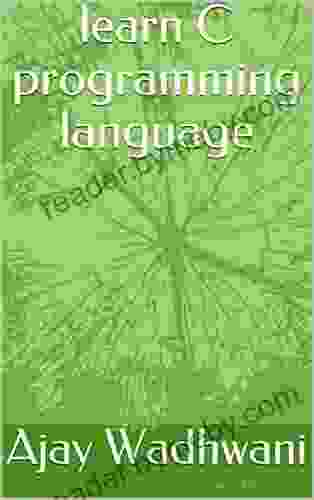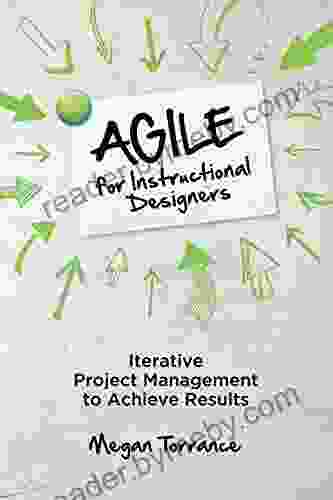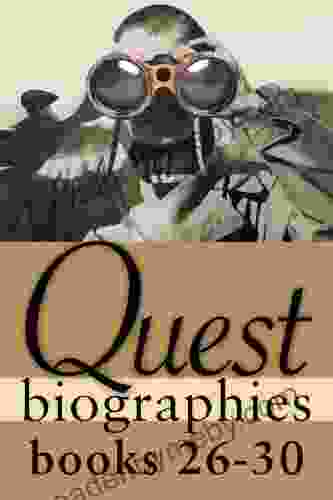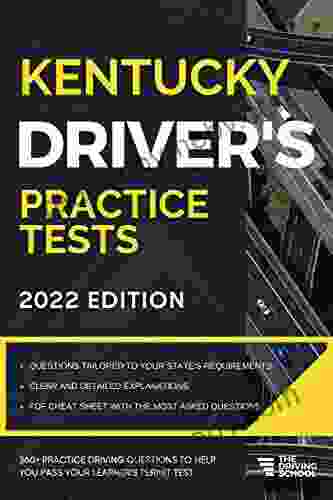Learn Programming Language: The Ultimate Guide to Mastering the Art of Coding

5 out of 5
| Language | : | English |
| File size | : | 1165 KB |
| Text-to-Speech | : | Enabled |
| Screen Reader | : | Supported |
| Enhanced typesetting | : | Enabled |
| Print length | : | 444 pages |
| Lending | : | Enabled |
In today's digital world, programming has become an essential skill. From developing websites to creating mobile apps, programming is used in almost every industry imaginable. If you're interested in learning how to program, there are many resources available to help you get started.
One of the best ways to learn programming is to find a good book or online tutorial. There are many great resources available, so it's important to do your research and find one that fits your learning style.
Once you've found a good resource, it's important to be patient and persistent. Learning to code takes time and effort, but it's definitely worth it.
What is Programming?
Programming is the process of converting a human-readable language into a form that a computer can understand. This process is called compilation. Once the code has been compiled, it can be executed by the computer.
Programming languages are designed to be easy for humans to read and write, but they are also precise enough to be understood by computers. There are many different programming languages, each with its own strengths and weaknesses.
Why Learn Programming?
There are many reasons to learn programming. Here are just a few:
- It's a valuable skill. Programming is a skill that can be used in almost any industry. It can help you get a job, start your own business, or simply make your life easier.
- It's fun. Programming can be a lot of fun. It's like solving a puzzle, but the puzzle is a computer program.
- It's empowering. When you know how to program, you have the power to create things. You can build websites, mobile apps, and even video games.
How to Choose a Programming Language
There are many different programming languages, so it's important to choose one that's right for you. Here are a few factors to consider:
- What do you want to do with programming? Some programming languages are better suited for certain tasks than others. For example, Python is a great language for data science, while Java is a good choice for developing Android apps.
- How much experience do you have with programming? Some programming languages are easier to learn than others. If you're a beginner, you might want to start with a language like Python or JavaScript.
- What are your learning goals? Do you want to learn programming for fun, or do you want to use it for your career? If you're serious about learning programming, you'll need to be willing to invest time and effort.
Getting Started
Once you've chosen a programming language, it's time to get started. Here are a few tips:
- Find a good resource. There are many great books and online tutorials available. Find one that fits your learning style and get started.
- Be patient and persistent. Learning to code takes time and effort. Don't get discouraged if you don't understand something right away. Just keep practicing and you'll eventually get it.
- Build projects. The best way to learn programming is to build projects. Start with small projects and gradually work your way up to more complex ones.
- Get help. If you're stuck, don't be afraid to ask for help. There are many online forums and communities where you can get help from other programmers.
Learning programming can be a challenging but rewarding experience. If you're willing to invest time and effort, you can learn this valuable skill. With the right resources and a little bit of perseverance, you can master the art of coding.
If you're interested in learning more about programming, I recommend checking out the following resources:
- Codecademy
- Udacity
- Coursera
- edX
- W3Schools
I hope this guide has helped you get started on your journey to learning programming. Good luck!
5 out of 5
| Language | : | English |
| File size | : | 1165 KB |
| Text-to-Speech | : | Enabled |
| Screen Reader | : | Supported |
| Enhanced typesetting | : | Enabled |
| Print length | : | 444 pages |
| Lending | : | Enabled |
Do you want to contribute by writing guest posts on this blog?
Please contact us and send us a resume of previous articles that you have written.
 Book
Book Novel
Novel Page
Page Chapter
Chapter Text
Text Story
Story Genre
Genre Reader
Reader Library
Library Paperback
Paperback E-book
E-book Magazine
Magazine Newspaper
Newspaper Paragraph
Paragraph Sentence
Sentence Bookmark
Bookmark Shelf
Shelf Glossary
Glossary Bibliography
Bibliography Foreword
Foreword Preface
Preface Synopsis
Synopsis Annotation
Annotation Footnote
Footnote Manuscript
Manuscript Scroll
Scroll Codex
Codex Tome
Tome Bestseller
Bestseller Classics
Classics Library card
Library card Narrative
Narrative Biography
Biography Autobiography
Autobiography Memoir
Memoir Reference
Reference Encyclopedia
Encyclopedia Sandra Bardwell
Sandra Bardwell Martin Mosebach
Martin Mosebach Kindle Edition
Kindle Edition Sophie Kinsella
Sophie Kinsella Pat Mora
Pat Mora Robert Montagne
Robert Montagne Mark Bailey
Mark Bailey Tove Jansson
Tove Jansson Tammie Lyon
Tammie Lyon Martin W Bowman
Martin W Bowman Vinny Sagoo
Vinny Sagoo Ryan Skinner
Ryan Skinner Jay Cassell
Jay Cassell Mark Wandrey
Mark Wandrey Paul Russell Garrett
Paul Russell Garrett Lisa Mcmann
Lisa Mcmann Trish Nicholson
Trish Nicholson Trevor Waugh
Trevor Waugh Philip Maffetone
Philip Maffetone Marc Cashman
Marc Cashman
Light bulbAdvertise smarter! Our strategic ad space ensures maximum exposure. Reserve your spot today!
 Patrick HayesFollow ·15.5k
Patrick HayesFollow ·15.5k Steven HayesFollow ·7.8k
Steven HayesFollow ·7.8k Edwin BlairFollow ·4.6k
Edwin BlairFollow ·4.6k Clayton HayesFollow ·2k
Clayton HayesFollow ·2k Chinua AchebeFollow ·16.3k
Chinua AchebeFollow ·16.3k Heath PowellFollow ·18.2k
Heath PowellFollow ·18.2k Jeremy MitchellFollow ·16.6k
Jeremy MitchellFollow ·16.6k Jonathan FranzenFollow ·11.4k
Jonathan FranzenFollow ·11.4k
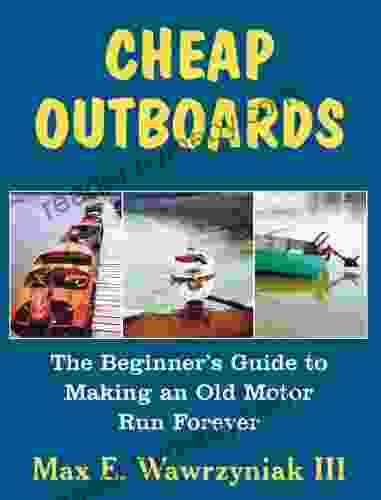
 Wayne Carter
Wayne CarterThe Beginner's Guide to Making an Old Motor Run Forever
If you're like most...
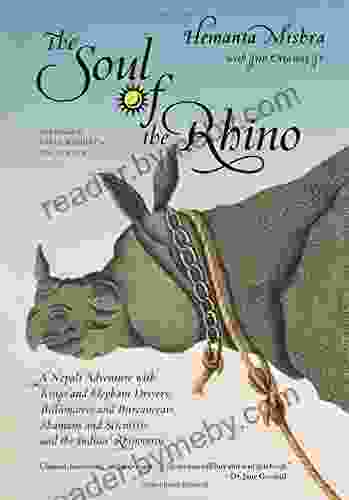
 Deacon Bell
Deacon BellNepali Adventure: Kings and Elephant Drivers,...
In the heart of the...
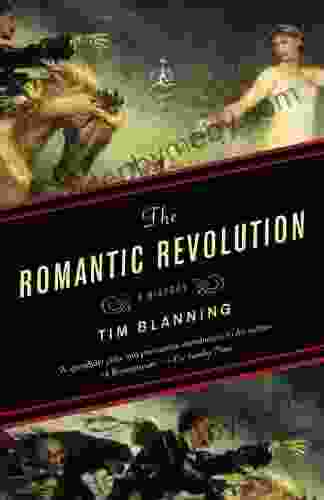
 Carlos Drummond
Carlos DrummondThe Romantic Revolution: A Journey Through History and...
Unveiling the...
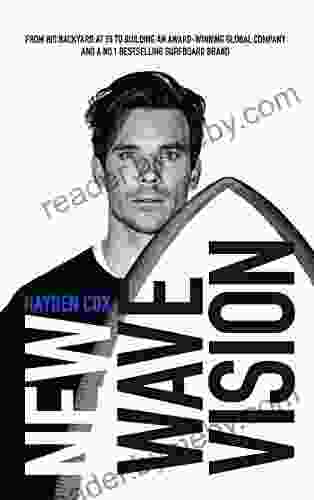
 Kazuo Ishiguro
Kazuo IshiguroUnlock Your Inner Innovator: Dive into the New Wave...
Embark on a Transformative Journey of...
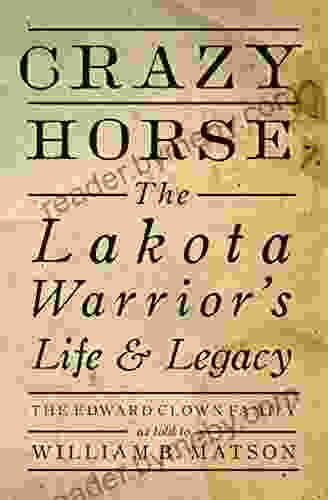
 William Golding
William GoldingCrazy Horse: The Lakota Warrior's Life and Legacy
In the annals of Native...

 Hector Blair
Hector BlairMildred and Richard Loving: The Inspiring Story of...
Mildred and Richard Loving were an...
5 out of 5
| Language | : | English |
| File size | : | 1165 KB |
| Text-to-Speech | : | Enabled |
| Screen Reader | : | Supported |
| Enhanced typesetting | : | Enabled |
| Print length | : | 444 pages |
| Lending | : | Enabled |


